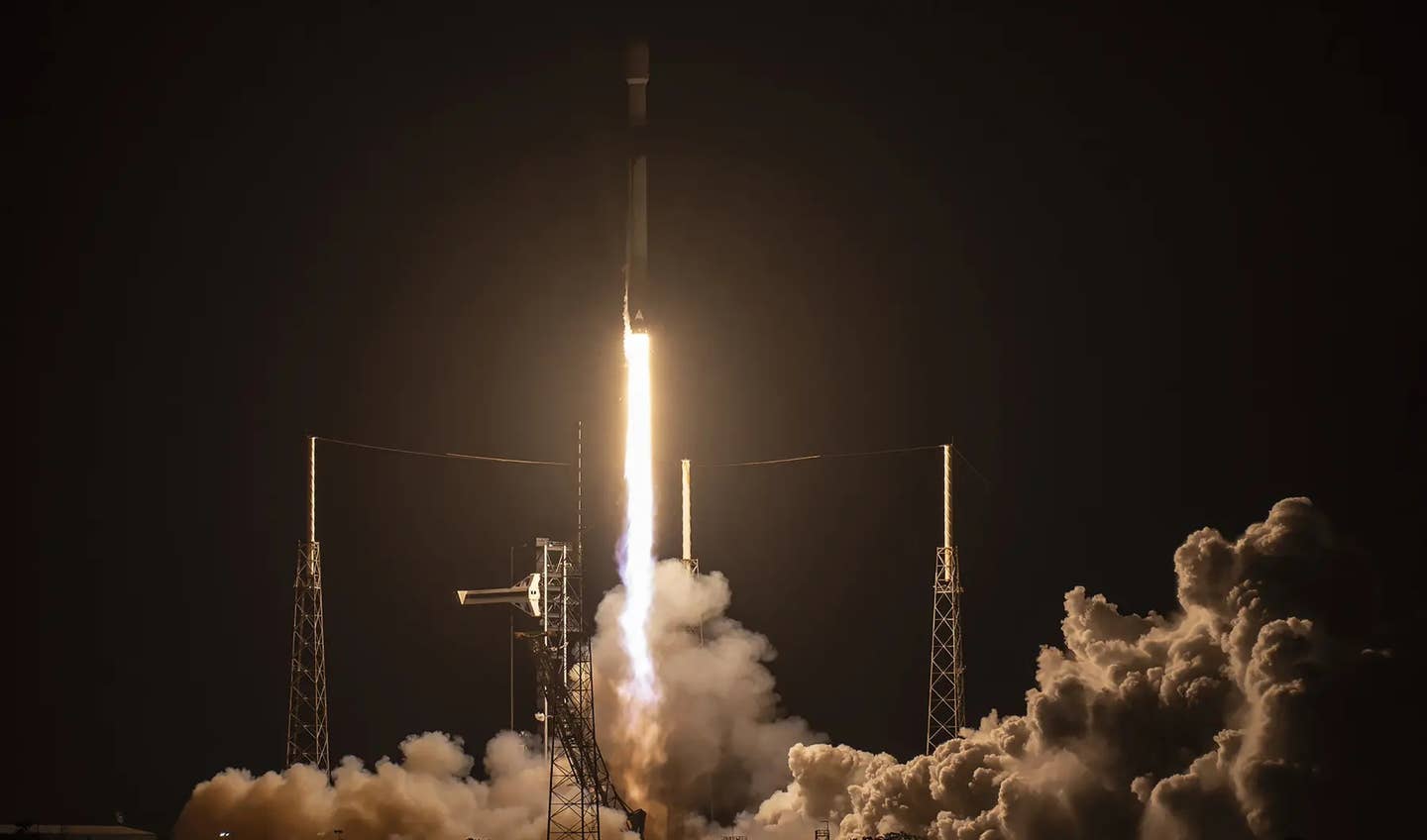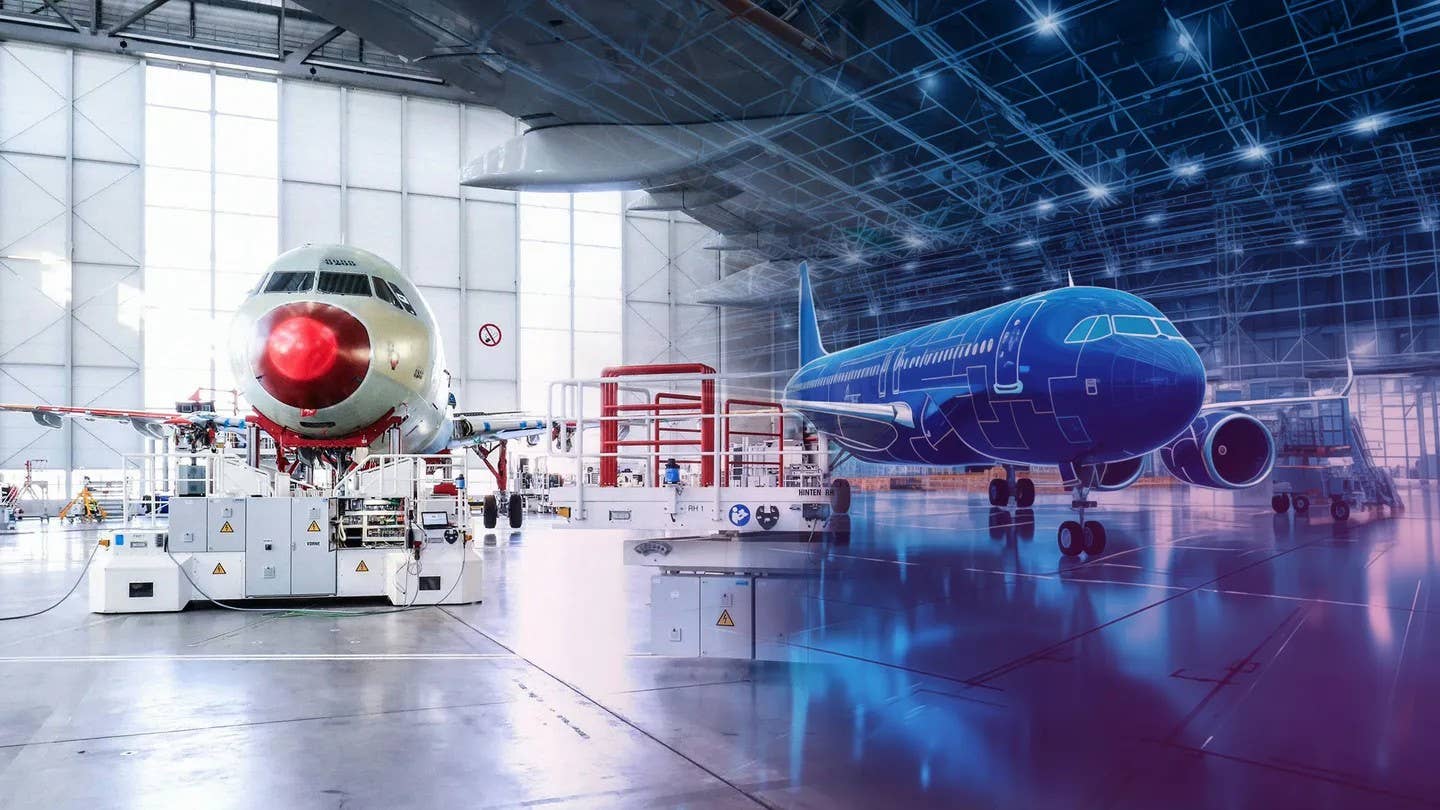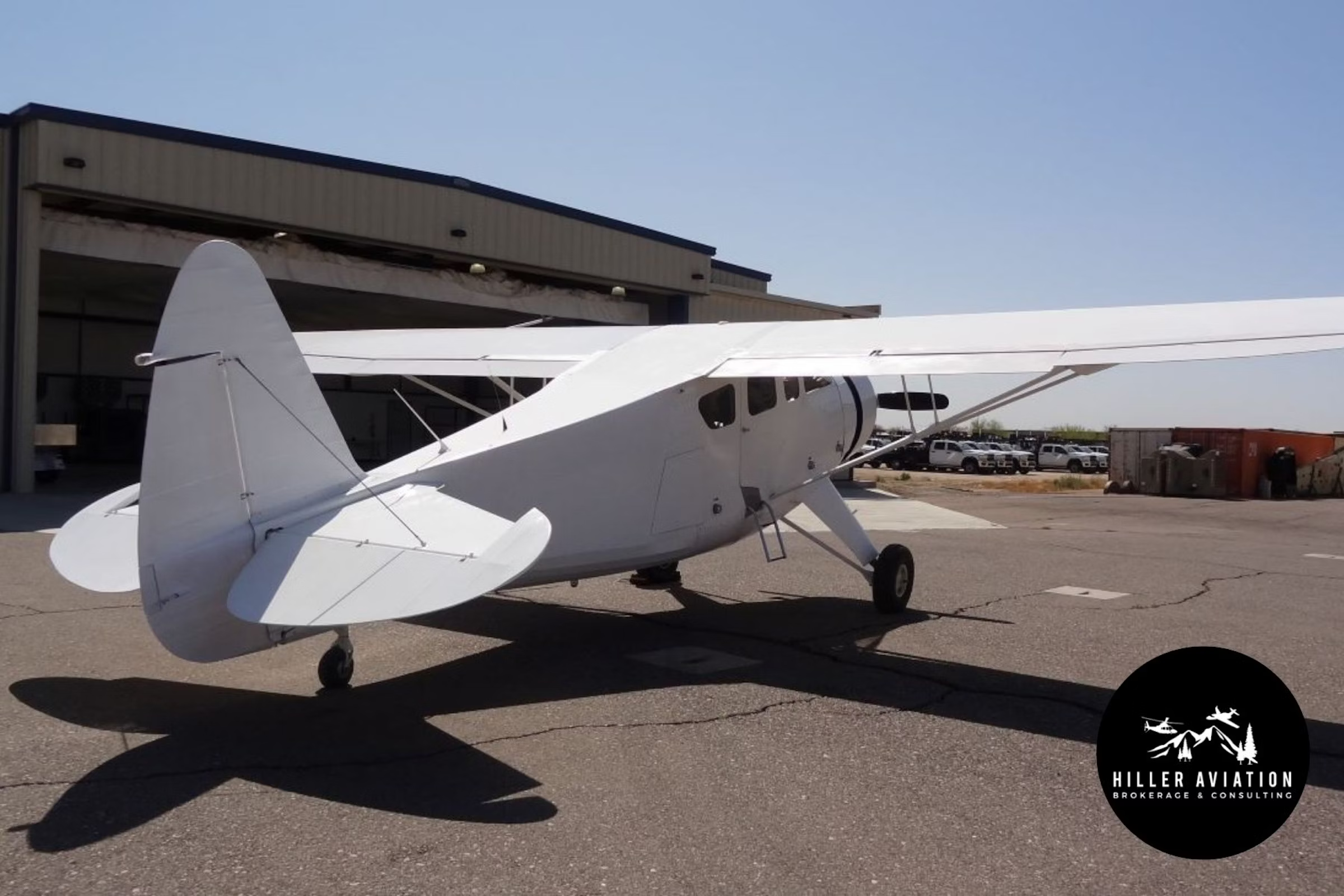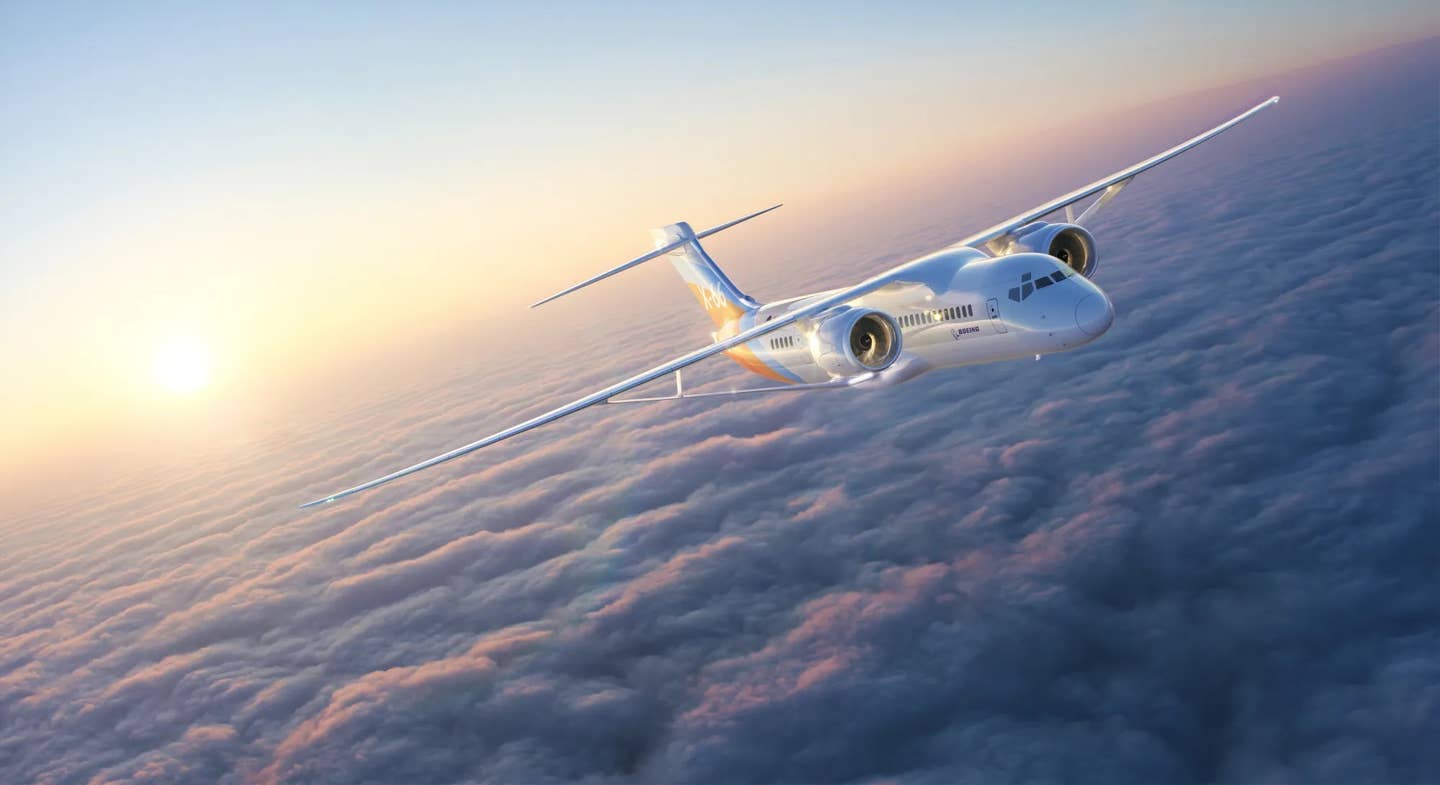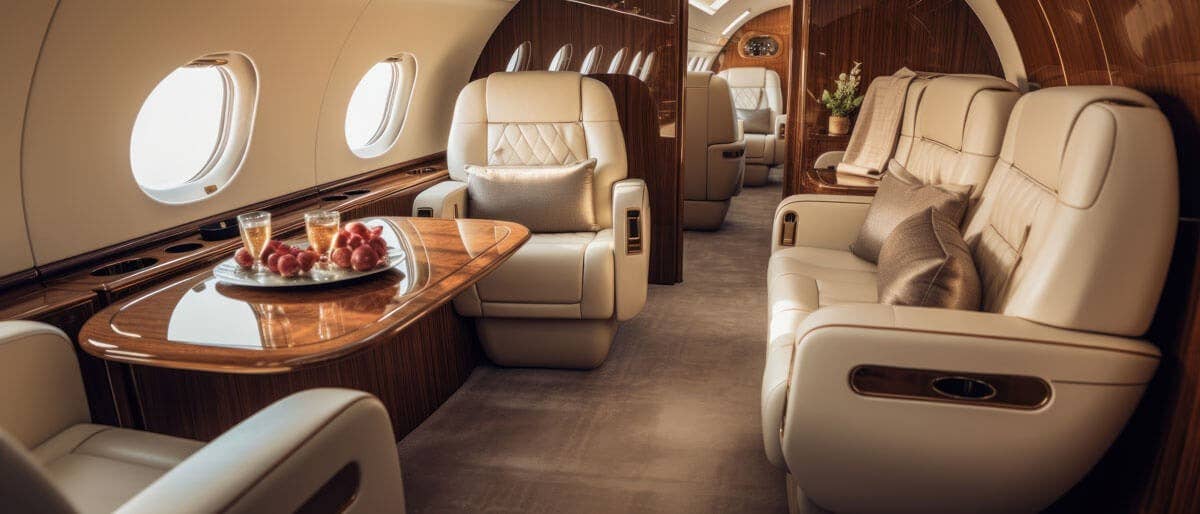Eve Air Mobility Names 4 New Suppliers for Electric Air Taxi
The Embraer air taxi subsidiary is enlisting Thales, Honeywell, Recaro Aircraft Seating, and FACC to provide components for its flagship air taxi.
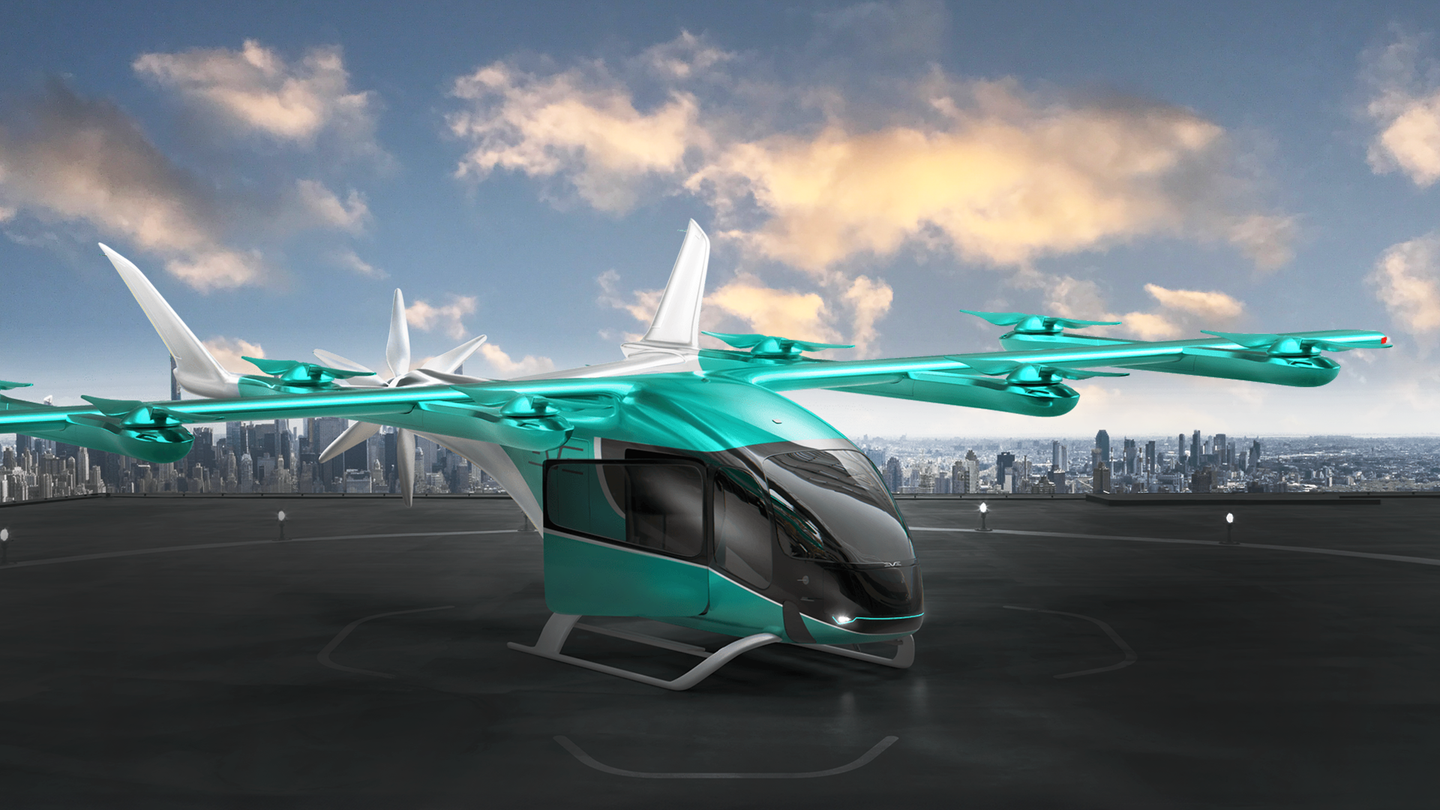
Eve Air Mobility announced Thales, Honeywell, Recaro Aircraft Seats, and FACC as its latest round of supplier partners. [Courtesy: Eve Air Mobility]
Eve Air Mobility, the electric vertical takeoff and landing (eVTOL) air taxi arm of aircraft manufacturing titan Embraer, is adding more partners to its rapidly growing supplier network.
The São Paulo-based company—which intends to launch commercial advanced air mobility (AAM) services in 2026—is enlisting Thales, Honeywell, Recaro Aircraft Seating, and FACC to supply the sensors, guidance and navigation, seats, and flight controls for its flagship model.
The Brazilian company’s aircraft is a lift plus cruise design built to fly four passengers and a pilot, with eight propellers dedicated to vertical flight and fixed wings for cruise. Unlike tiltrotor designs from competitors such as Archer Aviation and Boeing’s Wisk Aero, none of its propulsion systems move.
Recently, Eve added an electric pusher powered by dual electric motors to the design, creating redundant propulsion and improving safety and performance, the company said. It also claims the design will offer efficient thrust and minimal sound, despite a low cost of operation and fewer parts compared to conventional aircraft.
The Embraer subsidiary has begun assembling its first full-scale eVTOL prototype, which will undergo a test campaign later this year. It plans to launch commercial service worldwide in 2026.
Like Archer, Lilium, and other air taxi competitors, Eve intends to leverage a network of suppliers to build its aircraft. Outsourcing the production of components, the companies say, can keep capital costs lower than competitors.
This week’s partnerships come on the heels of two additional supplier announcements Eve made last year.
In June, it announced Nidec Aerospace—a joint venture between Embraer and Japan’s Nidec Corporation—BAE systems, and Duc Hélices Propellers as providers of electric propulsion, energy storage, and rotors and propellers, respectively. A few months later, Garmin, Liebherr-Aerospace, and Intergalactic were picked to supply flight controls, avionics, and thermal management systems.
Additionally, Eve is working with DHL Supply Chain to study the demands of its network, an agreement that also calls for the delivery of batteries, spare parts, and supplies, as well as the disposal of used materials.
“We continue to be on schedule with our master plan, and we are building a strong and reputable list of qualified suppliers for our eVTOL aircraft,” said Johann Bordais, CEO of Eve Air Mobility. “We have been very deliberate in establishing a long-term working relationship with each of our suppliers. Each agreement covers the aircraft’s life cycle including prototype, production, and aftermarket service and operational support.”
From Thales, Eve will receive an air data solution comprising sensors and a computer, which gathers data such as airspeed, altitude, and environmental conditions. That information is then relayed to pilots and other onboard systems to ensure safe flight in all weather conditions.
Honeywell will provide guidance and navigation in the form of magnetometers, GPS-aided attitude and heading reference systems, inertial reference systems, and other tech. Similarly, the data will be beamed to pilots and other systems to improve efficiency. Honeywell will also supply external lighting for the air taxi.
Recaro, a global supplier of premium aircraft seats for airlines (such as Alaska Airlines and Gulf Air), OEMs, and eVTOL designs, will design, certify, and produce the air taxi’s five seats. FACC, which is known for producing lightweight components, will lead development of the aircraft’s horizontal and vertical tail, including the rudder, elevator, and aileron.
The new partnerships come on the heels of the Brazilian National Civil Aviation Agency’s (ANAC) release of proposed airworthiness criteria for Eve’s design. The step is a key cog in the path to type certification, laying out the regulator’s requirements for how the air taxi is designed and operated. American eVTOL manufacturers Archer Aviation and Joby Aviation achieved the milestone in late 2022.
Eve and Embraer last year also broke ground on the company’s first eVTOL manufacturing plant in the Brazilian city of Taubaté near São Paulo. In a few months or years, suppliers will begin shipping components to the site, where Eve will mass produce its aircraft following certification.
Once scaled manufacturing begins, Eve intends to deliver its aircraft around the world. The company has agreements in place for air taxi services on six different continents, including partners in Brazil, Latin America, France, Scandinavia, India, Kenya, Dubai, Australia, and the Asia-Pacific region.
The manufacturer is also eyeing operations with partner (and investor) United Airlines, with plans to launch in the San Francisco Bay Area in 2026. Elsewhere in the U.S., Eve is collaborating with Blade Air Mobility to add service to South Florida.
Like this story? We think you'll also like the Future of FLYING newsletter sent every Thursday afternoon. Sign up now.

Sign-up for newsletters & special offers!
Get the latest FLYING stories & special offers delivered directly to your inbox

